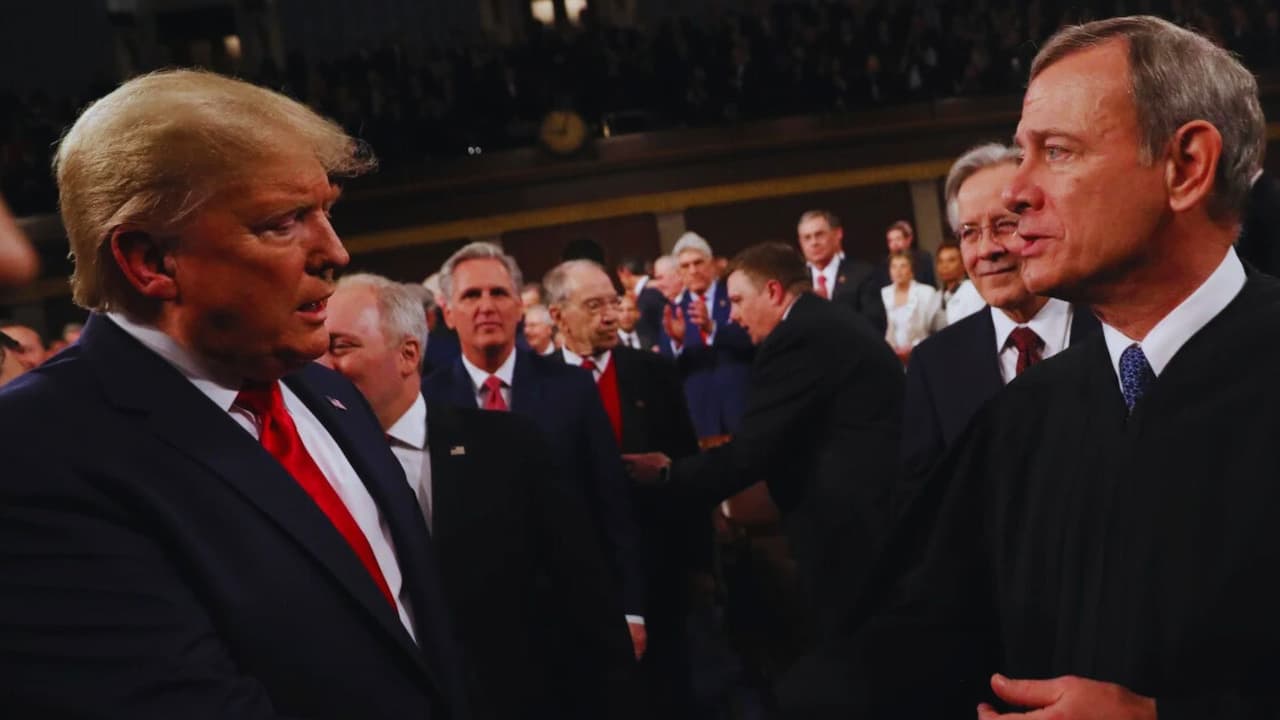Power Unleashed: The Supreme Court’s Historic Immunity Decision Charts a New Course for Presidential Authority
In a seismic shift that has sent shockwaves through America’s political landscape, the Supreme Court’s landmark ruling on presidential immunity has fundamentally altered the balance of presidential power just as Donald Trump prepares to return to the White House.
On July 1, the Court handed down a controversial 6-3 decision that grants presidents “absolute immunity” for actions taken within their core constitutional powers, a dramatic departure from 250 years of American presidential oversight.
As Trump rides the momentum of his sweeping election victory, this legal shield adds an unprecedented layer of protection to an already emboldened executive branch.
Chief Justice John Roberts, writing for the majority, emphasized that Congress cannot criminalize a president’s conduct when performing executive branch duties.
This ruling arrives at a crucial moment, with Trump openly declaring his intentions to dismiss Special Counsel Jack Smith “within two seconds” of taking office and suggesting that President Biden “could be a convicted felon.”
The timing couldn’t be more significant. As Trump prepares to retake the presidency in January, legal experts warn of a perfect storm brewing. Neil Eggleston, who served as White House counsel under Obama, warns of the dismantling of the guardrails that kept presidents in check for over two centuries. “I see few remaining constraints on President Trump’s actions.”
Justice Sonia Sotomayor‘s powerful dissent painted a stark picture of potential consequences. She outlined scenarios that would now fall under presidential immunity: ordering military assassinations of political rivals, organizing coups to retain power, or accepting bribes for pardons. “Immune, immune, immune,” she wrote, emphasizing the sweeping nature of the Court’s decision.
The ruling’s reach extends deep into the Justice Department’s operations. Trump’s interactions with DOJ officials now enjoy complete immunity from prosecution—a fact that forced Smith to remove related charges from the election subversion case.
Ethics experts are particularly concerned about this protection, especially in light of Trump’s campaign promises to pursue Biden and the entire Biden crime family.
Yet some guardrails remain. The ruling doesn’t shield White House aides or Justice Department officials, potentially creating a buffer against extreme presidential actions. The Court also left many questions unanswered about what constitutes “official actions” worthy of immunity.
Former DOJ official Rod Rosenstein offers a measured perspective: “There’s no law against the president expressing opinions about prosecutions, but the Constitution and ethics rules still ban politically motivated prosecutions.” He maintains that the department’s commitment to fact-based investigations will persist.
Looking ahead, the Supreme Court faces another crucial decision regarding former chief of staff Mark Meadows‘ attempt to move his Georgia election case to federal court. This pending ruling could further define the scope of executive immunity.
The debate over presidential power continues to evolve. While Trump’s supporters dismiss his aggressive campaign rhetoric as political theater, critics see the combination of expanded immunity and his stated intentions as a dangerous cocktail for democracy.
With unprecedented legal protections and uncertain boundaries, the American presidency finds itself at a crucial juncture as January approaches. The coming months will test whether traditional institutional checks can balance this newly expanded executive power or if Justice Sotomayor’s warnings of an unchecked presidency will prove prophetic.
